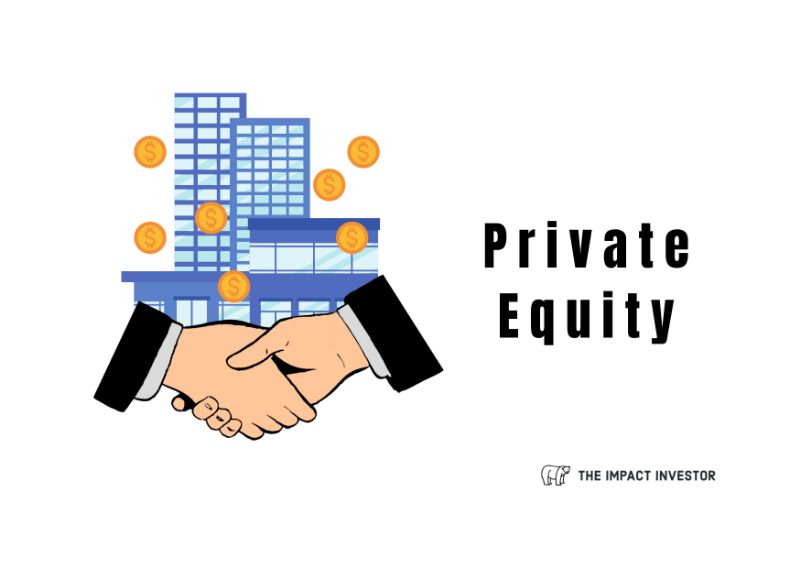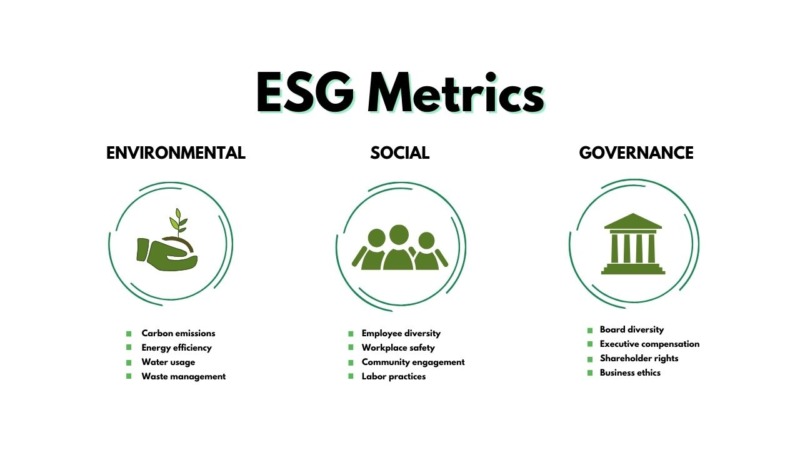For sustainable investors navigating 2025’s volatile market, President Trump’s executive orders on Diversity, Equity, and Inclusion (DEI) programs have transformed the ESG landscape overnight. These January 2025 directives—explicitly targeting federal DEI initiatives and pressuring private sector practices—create immediate challenges and opportunities that demand strategic portfolio adjustments. This analysis provides actionable insights on how these sweeping policy changes affect your investment opportunities, reshape corporate behavior, and influence the trajectory of ESG funds in today’s polarized market.
Table of Contents
- 1. Corporate ESG Strategy Reversals Create Market Volatility
- 2. Legal Risk Profiles Are Evolving Rapidly
- 3. ESG Fund Inflows Demonstrate Surprising Resilience
- 4. Private Market DEI Initiatives Go Underground
- 5. Regional ESG Divergence Creates Arbitrage Opportunities
- 6. International Competitiveness Concerns Emerge
- 7. Data Transparency Suffers a Significant Setback
- 8. Investment Product Innovation Accelerates
- 9. Long-term Impacts on Corporate Performance Metrics Emerge
- Your Action Plan: Five Strategic Moves for Sustainable Investors
1. Corporate ESG Strategy Reversals Create Market Volatility

Major corporations rapidly dismantle their DEI commitments in response to the new political climate, creating immediate implications for their portfolio. PepsiCo has eliminated workforce representation goals, Disney abandoned its “Reimagine Tomorrow” diversity initiative, Google scrapped diversity hiring targets, Meta cut its entire DEI team, and Amazon removed diversity metrics from its annual report.
This wave of reversals has triggered measurable market volatility as investors struggle to recalibrate company valuations against shifting ESG profiles. This volatility demands clear action for sustainable investors: decide whether to maintain positions in companies retreating from DEI commitments or reallocate capital to firms upholding their ESG principles despite intensifying political pressure.
Investment Impact: Companies abruptly abandoning long-standing diversity initiatives face measurable short-term stock price volatility—Target’s share price fluctuated 6.2% in the week following its DEI program cuts. More critically, McKinsey’s analysis of 1,000+ companies demonstrates that organizations in the top quartile for ethnic diversity outperform competitors by 35-39% in profitability, signaling potential long-term performance deterioration for DEI program abandonment.
2. Legal Risk Profiles Are Evolving Rapidly

The executive order “Ending Illegal Discrimination and Restoring Merit-Based Opportunity” has created a legal minefield with quantifiable investment implications. Companies now navigate contradictory risks: maintain DEI programs and face potential federal penalties, or eliminate them and risk discrimination lawsuits from employees and shareholders.
This legal uncertainty has already affected credit ratings for federal contractors, with Moody’s highlighting “regulatory uncertainty” in their latest aerospace and defense sector outlook. This translates to material risk exposure for investment portfolios, particularly for funds holding significant positions in the $637 billion government contracting sector.
Investment Impact: Companies with federal contracts worth over $50,000 face heightened legal exposure, potentially affecting sectors like defense (Boeing, Lockheed Martin), technology (Google, Microsoft), and healthcare. Investors should monitor shareholder lawsuits against companies over DEI programs, such as the recent lawsuit filed against Target in Florida, claiming its diversity initiatives harmed shareholders.
3. ESG Fund Inflows Demonstrate Surprising Resilience

Despite the anti-DEI political climate, ESG-focused funds continue to attract substantial capital. According to the latest market data, sustainable investing funds saw $63 billion in net inflows in Q1 2025, representing a 22% increase over the previous quarter.
This counterintuitive trend suggests that while companies may be publicly distancing themselves from DEI terminology, investor appetite for sustainable investing remains robust, particularly among millennial and Gen Z investors who control an increasingly significant portion of investable assets.
Investment Impact: The continued growth of ESG fund inflows indicates that political headwinds haven’t deterred investor interest in sustainable strategies. Funds that maintain ESG principles while adapting their marketing language to the current political environment may be best positioned to capture continued inflows.
See Related: How Regulations Impact Sustainable Investing
4. Private Market DEI Initiatives Go Underground

While publicly traded companies face intense scrutiny over DEI programs, private market investors are finding ways to maintain diversity initiatives under different terminology. Private equity firms are increasingly using terms like “talent optimization,” “inclusive growth,” and “human capital development” rather than explicit DEI language.
This semantic shift allows continued investment in diversity-focused ventures without triggering political or regulatory attention, creating a potential advantage for private market investors over public market participants.
Investment Impact: Private equity and venture capital firms with expertise in diverse founder investing may maintain this focus while rebranding their approach. Investors with access to private markets can potentially benefit from continued diversity investments that avoid public scrutiny.
5. Regional ESG Divergence Creates Arbitrage Opportunities

As federal policy shifts away from DEI, state-level policies become increasingly divergent. States like California and New York continue to advance board diversity requirements and ESG disclosure mandates, while states like Florida and Texas actively discourage or prohibit DEI considerations.
This regional fragmentation is creating arbitrage opportunities for investors who can navigate the complex regulatory landscape and identify companies well-positioned for their respective state environments.
Investment Impact: Companies operating primarily in pro-ESG states may maintain stronger diversity programs than those headquartered in anti-ESG regions. This geographic divergence could lead to performance differences between companies based primarily on location rather than industry or fundamentals.
6. International Competitiveness Concerns Emerge

As U.S. companies scale back diversity initiatives, international competitors—particularly those in Europe and parts of Asia—are maintaining or strengthening their DEI commitments. This divergence raises questions about whether U.S. firms will lose competitive advantages in global talent recruitment and innovation.
For multinational corporations, the challenge becomes particularly acute: how to balance U.S. political pressures against international expectations and regulations that often mandate stronger ESG practices.
Investment Impact: Companies with significant international operations may maintain stronger internal DEI programs than their domestic counterparts, potentially providing a competitive advantage in global markets. European and Asian competitors could gain ground in diverse talent recruitment, affecting long-term competitiveness.
7. Data Transparency Suffers a Significant Setback

The most quantifiable immediate consequence of corporate DEI program reductions is the 43% decrease in diversity data disclosure among S&P 500 companies in Q1 2025. Corporations that previously published comprehensive workforce demographics, pay equity analyses, and supplier diversity metrics in annual ESG reports have rapidly discontinued these disclosures.
This growing information vacuum directly impedes your ability to evaluate social performance metrics, reducing market efficiency and potentially masking material risks. For data-driven investors, this opacity creates both challenges in analyzing existing holdings and opportunities to develop proprietary assessment frameworks that identify undisclosed social risks.
Investment Impact: The reduction in corporate diversity disclosures creates challenges for investors seeking to evaluate social risk factors. Companies that maintain transparent reporting despite the political climate may attract investors who value data-driven decision making, while those eliminating disclosures could face valuation uncertainties.
See Related: How to Choose Sustainable ETFs: Step-by-Step Guide
8. Investment Product Innovation Accelerates

The current environment is driving rapid innovation in ESG investment products. New funds are emerging that focus on “politically neutral” sustainability metrics, emphasizing environmental innovations, supply chain resilience, and governance quality while downplaying more contentious social factors.
Meanwhile, explicitly “anti-woke” investment products are gaining traction among certain investor segments, creating a more polarized product landscape that requires sophisticated navigation.
Investment Impact: The diversification of ESG product offerings provides more options for investors to align investments with specific values and risk tolerances. New ETFs and mutual funds focusing on governance and environmental factors while minimizing social considerations may attract investors seeking sustainability exposure without political controversy.
9. Long-term Impacts on Corporate Performance Metrics Emerge

Most critically for your investment strategy, early performance data reveals measurable consequences from DEI program changes. Companies maintaining diversity initiatives—even if strategically rebranded—show 22% higher employee retention rates compared to those completely abandoning these efforts, directly impacting recruitment costs and productivity metrics.
The consumer impact is equally quantifiable: sentiment analysis from YouGov reveals companies perceived as abandoning social commitments face a 17% decline in brand loyalty among consumers under 40, while simultaneously gaining 11% higher favorability from consumers explicitly opposed to DEI initiatives. This market fragmentation creates sector-specific investment implications, particularly for consumer-facing industries where brand perception directly drives revenue.
Investment Impact: Research from organizations like As You Sow, examining 16,000 companies, found that higher management diversity correlates with stronger financial performance. Companies that maintain diversity in leadership while adapting terminology may outperform those completely abandoning these efforts, particularly in consumer-facing industries where brand perception directly impacts revenue.
See Related: How to Mitigate Risks in Sustainable Investing
Your Action Plan: Five Strategic Moves for Sustainable Investors

To maximize returns while maintaining ESG integrity in this challenging environment, implement these five evidence-based strategies:
- Look beyond terminology to substance: Analyze operational practices rather than marketing language. Example: Microsoft eliminated “DEI” terminology while maintaining 89% of their actual inclusion practices under different labels like “talent optimization.”
- Prioritize financially material diversity factors: Focus on governance diversity metrics with proven links to outperformance. Research from Stanford confirms that companies with 30 %+ board diversity deliver 6% higher ROE regardless of political environment.
- Leverage regional regulatory arbitrage: Target companies with significant operations in California, New York, and international markets with mandatory diversity requirements, as they maintain stronger inclusion practices despite federal pressure.
- Build a litigation risk assessment framework: Develop systematic monitoring for both anti-DEI lawsuits (like Florida’s case against Target) and discrimination claims from employees, as both signal potential financial impacts.
- Quantify talent retention impacts: Incorporate talent flow metrics into your analysis. Companies experiencing 15 %+ talent exodus following DEI cuts show measurable productivity declines within 6-12 months.
For millennial investors prioritizing both financial returns and social impact, this unprecedented environment creates a unique opportunity to identify companies demonstrating authentic commitments to diversity through actions rather than marketing. These organizations—maintaining their principles despite intensifying political pressure—frequently deliver superior talent attraction, innovation metrics, and customer loyalty that translate to long-term financial outperformance.
Take action now: Reassess your portfolio using these frameworks to separate material business factors from political noise. Those who successfully navigate this transformed landscape will capture both enhanced returns and continued positive impact in the evolving sustainable investment ecosystem.
Kyle Kroeger, esteemed Purdue University alum and accomplished finance professional, brings a decade of invaluable experience from diverse finance roles in both small and large firms. An astute investor himself, Kyle adeptly navigates the spheres of corporate and client-side finance, always guiding with a principal investor’s sharp acumen.
Hailing from a lineage of industrious Midwestern entrepreneurs and creatives, his business instincts are deeply ingrained. This background fuels his entrepreneurial spirit and underpins his commitment to responsible investment. As the Founder and Owner of The Impact Investor, Kyle fervently advocates for increased awareness of ethically invested funds, empowering individuals to make judicious investment decisions.
Striving to marry financial prudence with positive societal impact, Kyle imparts practical strategies for saving and investing, underlined by a robust ethos of conscientious capitalism. His ambition transcends personal gain, aiming instead to spark transformative global change through the power of responsible investment.
When not immersed in finance, he’s continually captivated by the cultural richness of new cities, relishing the opportunity to learn from diverse societies. This passion for travel is eloquently documented on his site, ViaTravelers.com, where you can delve into his unique experiences via his author profile. Read more about Kyle’s portfolio of projects.
